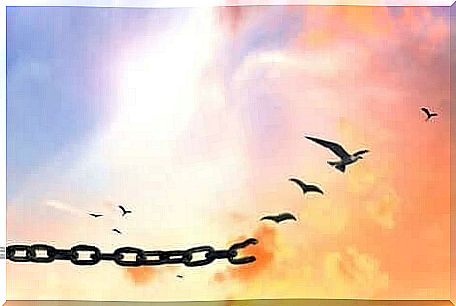What Does Freedom Of Speech Really Mean?

For democracy, dialogue and development to be able to cope, society needs a critical element: freedom of expression. This is because it is a universal right that everyone must enjoy.
All people must be able to express their opinions freely.
According to the UN, freedom of expression is a human right, and Article 19 of the Universal Declaration of Human Rights establishes the following:
The aim of this article is to analyze and claim that freedom of expression is the basis of every democratic society. In addition to the declaration above, it is also included in the UN Convention on Civil and Political Rights.

What exactly is freedom of speech?
Freedom of expression means that all people have the right to express themselves without being harassed. They must also have access to information and be able to transmit it without barriers.
This right is thus also about the freedom of the press, which is defined as “the transfer of information through the media without the State exercising control before issuing”.
Thus, freedom of expression protects:
- Political, religious, scientific, moral and historical views.
- All forms of expression, whether oral, written, pictorial, sign language or artistic.
- All forms of information dissemination, such as newspapers, posters, clothing, legal charges, etc.
- All opinions or ideas of interest to the people regarding their own and general issues, human rights, journalism, cultural and artistic expression as well as religious and political thoughts.
What are the necessary circumstances to exercise this right?
For true and effective freedom of speech to prevail, people must be able to:
- Express yourself and comment on all questions, however they choose to do so.
- Search, receive and disseminate information. This is because without information one cannot use the right to express oneself freely.
- Access information from the State because it is important to have effective policies, defend human rights and fight corruption.
- Have access to versatile and independent media, as monopolies or oligopolies on information counteract equality, diversity and plurality.
- To have effective protection for journalists and to avoid any direct or indirect pressure.
- Academic freedom so that students, teachers and researchers can freely seek, transfer and develop knowledge. Defending a free-thinking model counteracts indoctrination.
Furthermore, we must emphasize that freedom of expression also protects the right to make conscientious objections when someone else speaks. For example, in connection with “official” legislated ideology or various obligations, such as military service.
The concept of censorship
Anti-democratic regimes often threaten freedom of expression with various tools for censorship. Censorship can be explicit (statutory) or less obvious (for example, social taboos).
Therefore , one of the most radical ways to restrict freedom of expression is to do so in advance, such as censorship before a work has even been published.
Even if the term is not censored in advance, it can be regulated in the form of a fine after the work has been published.

Restrictions on our freedom of expression
But freedom of speech is not an absolute right. Legislation can also prohibit a person from inciting crime or violence. Freedom of expression does not give one the right to restrict other people’s rights.
However, where the line goes for legitimate and illegitimate use of freedom of expression is not always easy to identify.









